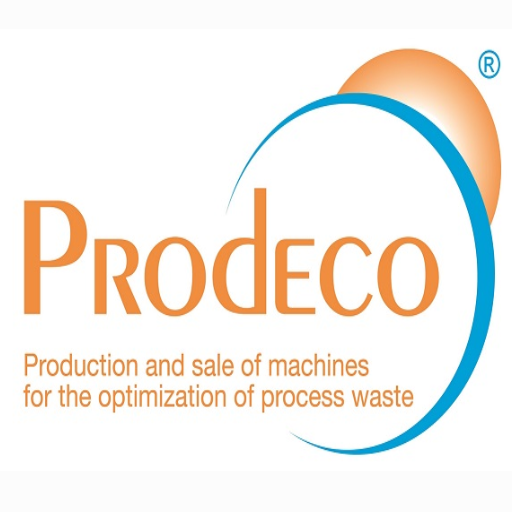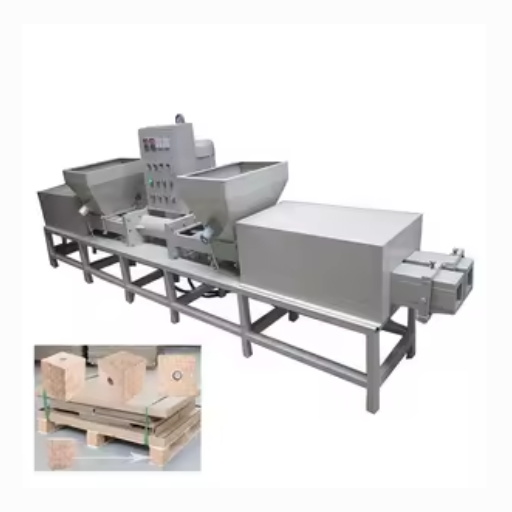
| Founded | 1969 |
|---|---|
| Background | Vecoplan AG is a global leader in the manufacture of industrial shredding, conveying, and processing solutions for wood-based materials. |
| Main Products | Industrial shredders, mechanical conveyors, and sawdust compressors. |
? Advantages
They are renowned for their sustainability, energy-efficient design, and reliability in industrial applications.
? Disadvantages
More expensive at the initial purchase than others.

| Founded | 1977 |
|---|---|
| Background | This is a German company specializing in extraction and air filtration systems. Other offerings include compression systems for wood by-products such as sawdust. |
| Main Products | Compressors for sawdust, vacuum filters, and chip extraction systems. |
? Advantages
High performance and innovative technology, aligned with customer requirements.
? Disadvantages
Limited product availability in far-off regions.

| Founded | 1969 |
|---|---|
| Background | RUF stands for the briquetting kinds of systems, so they provide equipment to compact sawdust and other resin-bearing wood residues. Their machines produce high-density briquettes with a wide range of applications. |
| Main Products | All kinds of compression and briquetting applications for wood, metals, and others. |
? Advantages
High-quality outputs, less waste, and longer-lasting equipment.
? Disadvantages
The equipment may require more care if subjected to scorching temperatures, continuous use, or heavy loads.

| Founded | 1889 |
|---|---|
| Background | In terms of providing briquetting equipment for the densification of sawdust and other biomass, this Denmark-based company is one of the oldest and most experienced firms around. |
| Main Products | Mechanical briquetting presses and sawdust compressors. |
? Advantages
Environmentally friendly solutions and high emphasis on innovation.
? Disadvantages
The longer delivery times are the consequence of heavy customization.

| Founded | 1980 |
|---|---|
| Background | WEIMA focuses on sustainable recycling and waste reduction solutions, as well as the provision of state-of-the-art equipment for compacting wood materials, such as sawdust. |
| Main Products | Shredders, briquette presses, and compression systems. |
? Advantages
Designed to use less energy and have a longer lifespan.
? Disadvantages
Costs can be relatively high, making it hard for some budgets.

| Founded | 1996 |
|---|---|
| Background | An Italian firm, Prodeco, is active in compacting systems of various kinds, especially those adapted to woodworking residues, with sawdust being a notable example. |
| Main Products | Briquetting presses and compressors for sawdust. |
? Advantages
Cost-efficient alternatives with an excellent reputation.
? Disadvantages
The Product range is minimal compared to some of the biggest.

| Founded | 2010 |
|---|---|
| Background | American company offering solutions aimed at efficiently converting wood waste, sawdust, and other raw materials into energy and for compression. |
| Main Products | Briquetting systems and biomass compressors. |
? Advantages
Cost-effective options and customizable systems.
? Disadvantages
Smaller presence outside the United States.

| Founded | 1995 |
|---|---|
| Background | LEHRA Fuel offers innovative and economical briquetting technology for compressing biomass, such as sawdust, into usable fuel, based in India. |
| Main Products | Biomass briquetting machines and sawdust compressors. |
? Advantages
Low-cost solutions that would be best suited for small and medium enterprises.
? Disadvantages
Fewer automation options as compared to other companies.

| Founded | 1974 |
|---|---|
| Background | TERI India provides equipment for renewable energy and waste management, including compactors for sawdust. |
| Main Products | Biomass compression equipment and renewable energy solutions. |
? Advantages
Environmentally friendly designs and affordable prices.
? Disadvantages
Greater availability only in the interior market.

| Founded | 1897 |
|---|---|
| Background | Recognized as the largest particleboard and MDF manufacturer worldwide, Kronospan also promotes its technologies in sawdust compaction as a renewable technology for wood products. |
| Main Products | Solutions for wood, viz., sawdust recycling and compressing technologies. |
? Advantages
Integrated systems for larger operations.
? Disadvantages
Due to their industrial design, these products are less suitable for minor operations.
Frequently Asked Questions (FAQs)
What is a sawdust briquette machine?
A sawdust briquette machine is a specialized piece of machinery designed to compress sawdust and wood shavings into dense briquettes. These briquettes can serve as a fuel source, making them an efficient and environmentally friendly alternative to traditional fuels. The machine utilizes heat and pressure to bind the sawdust together, often using natural lignin found in wood as a binding agent.
How are sawdust briquettes made?
Sawdust briquettes are made by feeding sawdust into a briquette machine, which compresses the material under high pressure. The process generates heat that helps to melt lignin, allowing the sawdust to stick together. The resulting briquettes can vary in size and density, depending on the machine’s settings and the type of biomass material used.
What are the benefits of using a sawdust briquette press?
A sawdust briquette press offers numerous benefits, including high efficiency in converting wood waste into usable fuel. It reduces the volume of sawdust, making storage easier, and provides an eco-friendly energy source. Additionally, briquettes made from sawdust produce less smoke and pollution compared to traditional fuels, making them ideal for heating and combustion.
Can sawdust briquettes be used in charcoal machines?
Yes, sawdust briquettes can be used in charcoal machines. These machines can process sawdust briquettes into charcoal briquettes, which are highly sought after for grilling and barbecuing. The conversion enhances the energy content of the briquettes, making them a superior fuel option for outdoor cooking.
What types of machinery are involved in sawdust briquetting?
The machinery involved in sawdust briquetting includes sawdust briquette machines, briquette presses, and, occasionally, additional equipment such as drying machines to reduce the moisture content. Manufacturers also offer spare parts for maintenance, ensuring the machinery operates efficiently and produces high-quality briquettes.
What is the size of sawdust used for briquetting?
The diameter of sawdust used for briquetting typically ranges from 1mm to 5mm. Smaller sizes ensure better compaction and higher density in the final briquettes. Wood dust and shavings can also be utilized, but it’s important to maintain the right moisture content for optimal briquette production.
Who are the leading suppliers of sawdust briquette machines?
Leading suppliers of sawdust briquette machines include manufacturers that specialize in biomass machinery. These companies often provide a range of options from small compressors suitable for home use to larger industrial sawdust briquette presses. Researching reputable suppliers is crucial for finding high-quality machines that meet specific production needs.
What are the applications of sawdust briquettes?
Sawdust briquettes have various applications, primarily as a source of fuel for heating and energy generation. They can also be used in biomass power plants and as an alternative to charcoal in grilling. Additionally, they can serve in industrial processes where a high-density fuel source is required.
Can sawdust be reused for different applications?
Yes, sawdust can be reused for various applications beyond briquetting. It can be used as bedding for animals, in composting, or as an ingredient in particle board manufacturing. The versatility of sawdust makes it a valuable resource in wood processing and woodworking industries.







